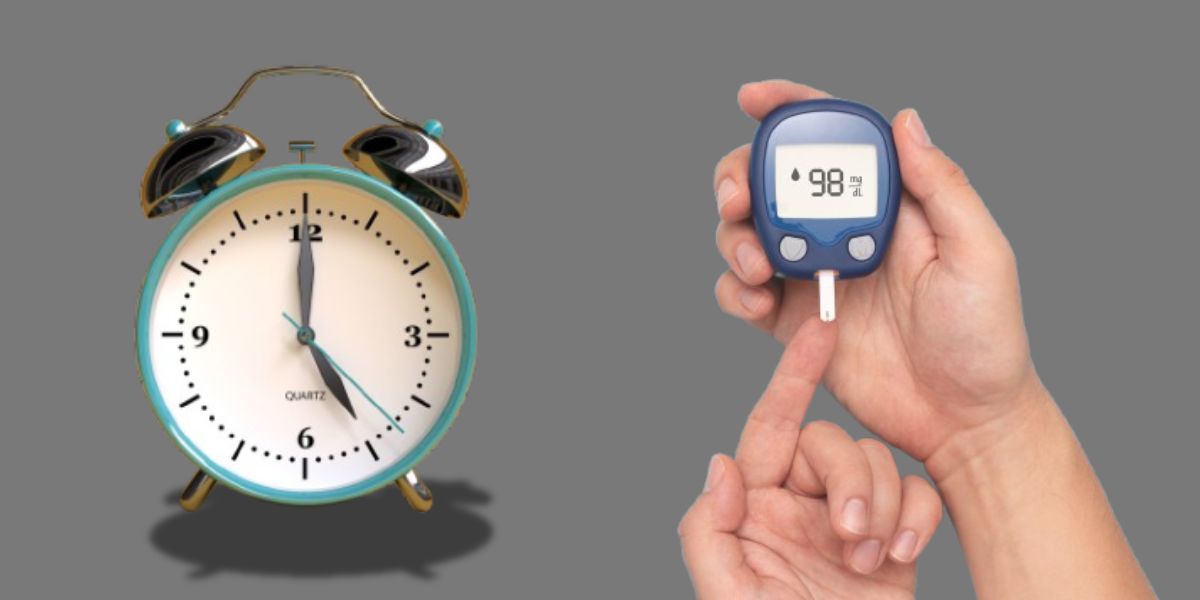Published Dec 11, 2024 | 7:00 AM ⚊ Updated Dec 11, 2024 | 7:00 AM

Are you eating dinner at the wrong time?
What time do you usually wrap up dinner? If it’s past 8 pm, you might want to rethink your schedule.
For generations, Indian households have emphasised finishing dinner early, but it’s not just age-old wisdom anymore—it’s science.
A recent study by the Universitat Oberta de Catalunya (UOC) and Columbia University has confirmed that eating late in the evening can wreak havoc on your blood sugar levels, irrespective of your weight or calorie count.
Published in Nutrition & Diabetes, the study revealed that consuming more than 45 percent of your daily calories after 5 pm is linked to higher glucose levels, which could lead to insulin resistance, type 2 diabetes, and cardiovascular risks. It also highlighted how meal timing, often overlooked in nutrition advice, is just as crucial as what and how much we eat.
The findings add weight to the growing popularity of intermittent fasting, a practice many Indians adopt to manage weight and improve metabolic health.
Dr V Mohan, renowned diabetologist and founder of Dr V Mohan’s Diabetes Research Centre, not connected to the study, partly agreed with these findings.
“I haven’t seen this particular study. However, there have been several studies that has shown that early dinner always helps. The later you have dinner, it tends to get deposited as fat in the liver more, especially in India, people eat at 9 pm, 10 pm and even later than midnight. That is often blamed as the reasons why fatty liver develops and fasting blood sugar goes very high,” explained Dr Mohan.
Dr Díaz Rizzolo, lead researcher of the study explained the body’s limitations in processing glucose at night.
“Our ability to metabolise glucose is reduced at night because the secretion of insulin declines and cells become less sensitive to it due to the body’s circadian rhythm.” This rhythm, synchronised with daylight and darkness, affects how efficiently the body manages glucose metabolism.
The study involved 26 participants aged between 50 and 70, all overweight or obese and living with prediabetes or type 2 diabetes. The participants were divided into two groups:
Early eaters: Consumed the majority of their calories before evening.
Late eaters: Consumed 45 percent or more of their daily calories after 5 pm.
Despite identical calorie consumption and similar food choices, late eaters exhibited poorer glucose tolerance. They also consumed more carbohydrates and fats in the evening, exacerbating metabolic stress.
Dr Mohan said, the reason why early dinner helps is, “digestion is facilitated and it is confirmed with earlier studies that late dinner is associated with non-alcoholic fatty liver disease. Also, the other way that works is by having an early dinner, intermittent fasting is partly enforced. As the breakfast will then be after a period of 13 to 16 hours. This, is known to help in improving metabolic disorders.”
Time restricted eating (TRE) and intermittent fasting are known to help metabolically, added Dr Mohan.
Speaking to South First, nutritionist Swetha Adarsh confirmed that “Consuming calorie-rich food after 5 pm can lead to higher glucose levels due to decreased physical activity. During office hours (9-5), activity is at its peak, high and vigorous during this period, but after 5 pm, people relax and engage in lighter activities.
About weight gain, the nutritionist said, “Eating heavy food when activity levels drop requires the body to work harder to digest, affecting glucose levels and potentially leading to weight gain. The opposite of weight gain is increased activity. After 5 pm, as activity decreases, if our food intake is higher and our activity is lower, we will gain weight.”
Further speaking of hormonal changes in young adults, she added, “Additionally, hormonal changes, particularly among younger individuals, who are active late at night, can lead to unhealthy snacking, disrupting sleep patterns and further affecting hormone levels and blood sugar.”
In India, where diabetes is alarmingly prevalent, such findings hold critical relevance. Urban lifestyles, late work hours, and irregular eating habits often lead to heavier dinners. Coupled with the rising consumption of ultra-processed foods and a preference for carbohydrate-heavy meals, the risks for insulin resistance and metabolic disorders multiply.
“Maintaining high glucose levels over long periods can accelerate the progression to type 2 diabetes and increase cardiovascular risks,” added Dr. Díaz Rizzolo. These insights are particularly crucial for Indians, who are genetically predisposed to diabetes and other metabolic conditions.
The study highlighted a crucial finding regarding the impact of meal timing on health. “Until now, nutrition decisions have primarily focused on two questions: how much to eat and what foods to choose. This study introduces a new and significant factor in cardiometabolic health—when we eat,” explained Díaz Rizzolo.
Based on the study’s results, while exercising caution and acknowledging the need for further research, the researcher suggested that meals should predominantly be consumed during daylight hours.
“Calorie intake should be highest at breakfast and lunch, rather than at teatime or dinner,” Díaz Rizzolo advised. Additionally, they recommend avoiding ultra-processed foods, fast food, and carbohydrate-rich meals, particularly at night.
Speaking to South First, metabolic health coach, cofounder of dLife.in and founder of Metabolic Health India, Shashikant Iyengar agreed with the study. He said that the concept of Time Restricted Eating (TRE), where dinner is consumed early, ideally around sunset, has shown to offer better blood sugar control and even weight loss benefits.
“This can be attributed to the fact that insulin sensitivity tends to decrease later in the day, making it advantageous to finish dinner earlier. Additionally, dinner’s carbohydrate content should be lower than the earlier two meals of the day. Multiple cases have demonstrated significant improvements in health outcomes with this early dinner pattern,” Shashikant Iyegar added.
(Edited by Ananya Rao)

